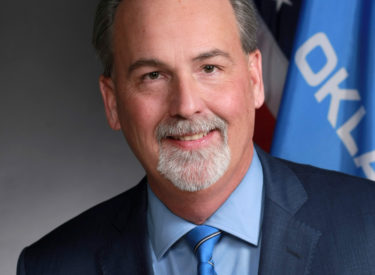Interim work
Ponca City Now - August 16, 2019 9:43 am

By Sen. Bill Coleman
Summer is winding down and students are getting back to school. Football season and other sports are just around the corner.
Work at the Capitol is also picking up. More than 160 interim studies were approved in the Senate and House. These are requested by individual members to learn more about a particular issue. They are assigned to the committee with jurisdiction over the topic. Experts from other state Legislatures, the business community, nonprofits and other areas are called in to educate the committee on all sides of an issue. Private citizens who have been impacted by an issue also share their experiences.
These meetings are so important to ensure legislators are well informed on the issues they’re wanting to file legislation on. There are always two (or three or 10) sides to an issue. While a policy change might not have short-term effects on the state, it can long-term. Legislators can’t just worry about how legislation will impact citizens next year but decades down the road.

Sen. Coleman, in blue tie, and his legislative colleagues listen to presentations during the first meeting of the Healthcare Working Group.
Again, these are public meetings. You may attend them at the state Capitol or watch them live on the House and Senate websites. The Senate is working on making some technological upgrades and at some point in the future, committee meetings will be archived, but we currently don’t have that capability. Meeting date and times will be posted on the websites as they are scheduled.
There are also two major working groups meeting these interim. Unlike interim studies that are conducted by the standing committees, members of working groups are appointed by Senate and House leadership.
This year, the Senate and House are conducting two bicameral, bipartisan working groups.
I’ve been appointed to the Healthcare Working Group. Our committee will work similarly to the Medical Marijuana Working Group that met for several months last year. Committee members filed numerous bills that led to the introduction of the industry to our state. These types of groups are necessary when dealing with complex issues.
We’ll work to create a long-term plan to improve the state’s high uninsured rate as well as access to quality healthcare. Our state ranks near the bottom in numerous health ratings and we want to address that. Oklahomans deserve better but these are hard problems to fix and will be expensive. We need to know exactly what is causing our low rankings, how other states have addressed those issues and both the short- and long-term costs of addressing those issues. We’re looking for ways to lower healthcare costs, increase access and improve the level of care. Part of this study will be looking at Medicaid expansion as well.
We held our first meeting this week. The State Department of Health and the Oklahoma Health Care Authority gave us an overview of the health issues facing the state.
The Oversight Committee for the Legislative Office of Fiscal Transparency also held its second meeting this week. LOFT was created and signed into law this year and will help the Legislature and public have more accurate, up-to-date state agency budgetary and financial information as well as program performance analysis. This office will ensure the Legislature knows exactly how agencies are spending every penny of taxpayer money appropriated to them. They are currently working on the director job description and the rules to guide the office.
You can contact me at the state Capitol by calling (405) 521-5581 or by email at [email protected].



